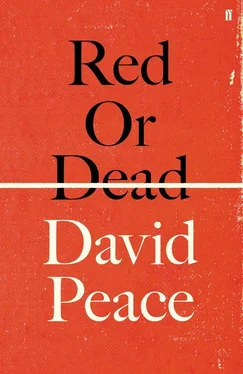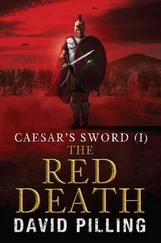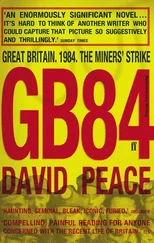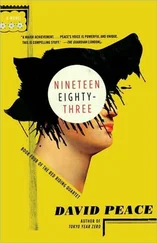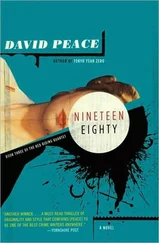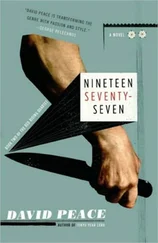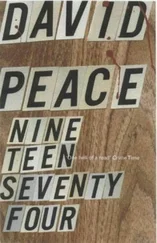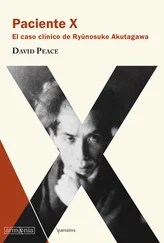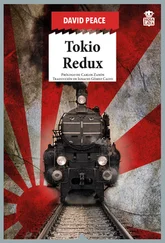It was already light again,
already morning
again.
…
In the dressing room, the away dressing room at Highbury. Bill took his hat off the back of the dressing-room door. And Bill put on his hat. Bill pulled the brim of his hat down low. Bill opened the dressing-room door. Bill stepped out into the corridor at Highbury. And Bill saw the gentlemen of the London sporting press. Bill stuck out his jaw, Bill held up his finger. And Bill said, What an encounter that was. An encounter of epic proportions! Furiously fast and instinctively skilful. It was a battle to delight even the most demanding of you . And more-than-ample reward for those who endured the foulest of weathers to watch it. More-than-ample reward! To witness such collective enthusiasm. Such rare courage! Such insistence upon attack. And it was a battle, was it not, of two equally powerful but too equally skilful wing-halves? Their boy Eastham and our man Melia. What a battle, what an encounter! One or the other, forever springing forward, forever galloping into enemy territory. Even in such rank conditions, even in such treacherous mud. Neither player could be impeded, neither man could be restrained. You saw the way Melia pounced on every ball. The way he shrugged off every tackle. The sudden changes of direction, the quick feints this way and then that. And then the balls, then the passes he sent. What balls, what passes. The way he sent St John through, the way he put Hunt through. Time and time again. Despite the conditions, despite the mud. And then there was Yeats. What a player he is, what a man he is. He stood astride the middle like a colossus. A colossus of flesh and a colossus of blood. Time and time again, calmly swatting away the pin-pricks of their passes, swatting them away like an irritating fly. The player was immoveable, the man was imperious. A colossus of flesh, a colossus of blood! As the battle raged about him. But what a battle, what an encounter! You gentlemen must surely count yourselves amongst the luckiest men on earth to have seen such a game, to have witnessed such a match. And to be paid for that pleasure, to be paid for that privilege, into the bargain. To be bloody paid to watch it, to be bloody paid to write about it. I tell you, I envy you, gentlemen. I truly do. I envy you men, I truly do!
But what about next week, asked the gentlemen of the London sporting press. Who will win next week, Bill? In the Cup?
Bill smiled, Bill laughed. And Bill said, Have you not been listening? Have you not heard a word I’ve said? Next week there can be only one victor. Next week there will be only one winner. Liverpool Football Club. You mark my words. And so you come back and see. Because I’m never wrong. I’m never wrong.
…
On the train, the train back to Liverpool. In the carriage, in his seat. Bill closed his book. His book of names, his book of notes. And in the carriage, in his seat. Bill closed his eyes. And Bill felt the wheels of the train beneath him now. Turning, turning. Their movement and their rhythm. Round and round. Movement and rhythm. Forward, always forward. LI–VER-POOL . Sweeping Arsenal off the ball, their passes astray and their shooting awry. LI–VER-POOL. Again and again, as Liverpool came. LI–VER-POOL . Forward, always forward. LI–VER-POOL . Always five forward. LI–VER-POOL . Callaghan, Hunt, St John, Melia and Lewis. LI–VER-POOL . Always backed, always reinforced by Milne and by Stevenson. LI–VER-POOL . Forward, always forward. LI–VER-POOL . But built on stone, built on rock. LI–VER-POOL . Yeats again immoveable, Yeats again imperious. LI–VER-POOL . At the back between Byrne and Moran. LI–VER-POOL . Yeats, Byrne and Moran protecting Lawrence, shielding Lawrence. LI–VER- POOL . Building from the back, but building always forward. LIVER- POOL . At every chance, at every opportunity. LI–VER-POOL . A throw-in on the left. LI–VER-POOL . A deception by Hunt. LI–VER - POOL . Hunt slipping the ball through to Melia. LI–VER-POOL . Melia shooting. LI–VER-POOL . Melia scoring. LI–VER-POOL . One — nil. LIVER- POOL. LI–VER-POOL. LI–VER-POOL . And then on a corner. LIVER- POOL . Another corner. LI–VER-POOL . A corner from Lewis. LIVER- POOL . The ball swirling. LI–VER-POOL . And their man Barnwell, under no pressure at that moment, but having been harried for an hour, their man Barnwell handling the ball, handling out of the pressure, the imagined pressure, handling out of fear, the very real fear. LI–VER-POOL . And then the penalty. LI–VER-POOL . And then the goal. LI–VER-POOL . From the spot. LI–VER-POOL . By Moran. LIVER-POOL . Two — nil. WE WANT THREE ! The noise from the Liverpool supporters. WE WANT THREE ! The Liverpool supporters packed into the North Stand. WE WANT THREE! Urging Liverpool Football Club forward. LI–VER-POOL . Rhythmically. LI–VER-POOL . Over and over. LI–VER-POOL . Forward, always forward. LI–VERPOOL. Movement and rhythm. LI–VER-POOL . Round and round. LIVER- POOL . Their movement and their rhythm. LI–VER-POOL . Turning, turning. LI–VER-POOL . Like the wheels of a train. And in the carriage, in his seat. Bill opened his eyes again. And Bill looked down the carriage. Bob, Joe and Reuben were sat further down the carriage with the players. Tonight the players were not playing cards or reading books. Tonight the players were laughing and singing. WE’RE GOING TO WIN THE CUP. Tonight the players were drinking. WE’RE GOING TO WIN THE CUP. Tonight the players were celebrating. EE-AYE-ADDIO, WE’RE GOING TO WIN THE CUP. Today Liverpool Football Club had beaten Arsenal Football Club two — one in the Fifth Round of the FA Cup. And in the carriage, in his seat. Bill smiled. He had not been wrong, he had not been wrong.
…
In the dug-out, on the bench. The Anfield bench. Bill was nervous. And on the pitch, the Anfield pitch. The players of Liverpool Football Club were nervous. And in the stands, the Anfield stands. The forty-nine thousand and thirty-six supporters of Liverpool Football Club were nervous, too. Twice now, Byrne had had to clear off the Liverpool goal line. Time and again, Byrne’s tackles, Byrne’s interceptions, had kept Liverpool Football Club in the FA Cup. And now with nine minutes to go, with a hush across the ground, the Anfield ground, it was Byrne again, Gerry Byrne again who intercepted another West Ham ball, Byrne again who passed to Gordon Milne, so Milne could send Willie Stevenson away, away over the halfway line, over the halfway line and on to Jimmy Melia, Melia who then passed to Roger Hunt, Hunt still well to the left of the West Ham goal. But this time, and only this time, there was no challenge, no West Ham challenge. And as their keeper came, as Standen came, Hunt screwed the ball, the ball round Standen from an incredible angle, an incredible angle and into the back of the net. We’re going to win the Cup . At last, at last. The ball in the back of the West Ham net and Liverpool Football Club in the hat. We’re going to win the Cup. At last, at last. In the hat for the draw for the semi-finals of the FA Cup –
Ee-aye-addio, we’re going to win the Cup!
…
In the dug-out, on the bench. The Anfield bench. Bill was furious. The players of Liverpool Football Club had been outplayed, the players of Liverpool Football Club had been outclassed. And the fifty-four thousand four hundred and sixty-three supporters of Liverpool Football Club had been silenced. Liverpool Football Club were losing two — nil to Tottenham Hotspur. At home, at Anfield. In the dug-out, on the bench. Bill stood up. Bill walked down the touchline. Bill walked down the tunnel. Bill walked into the dressing room. Bill left the dressing-room door open. Bill looked around the dressing room. Bill pointed out of the dressing-room door. Bill pointed out into the corridor. And Bill said, Do you hear that sound? That is the sound of laughter. Laughter from the Tottenham dressing room. Because they are laughing at you, they are laughing at Liverpool Football Club. They are thinking the job is done, they are thinking they have beaten Liverpool Football Club. That you have given up, that Liverpool Football Club have submitted. Given up and bloody submitted –
Читать дальше
